Rebuilding Mosul's libraries book by book
- Published
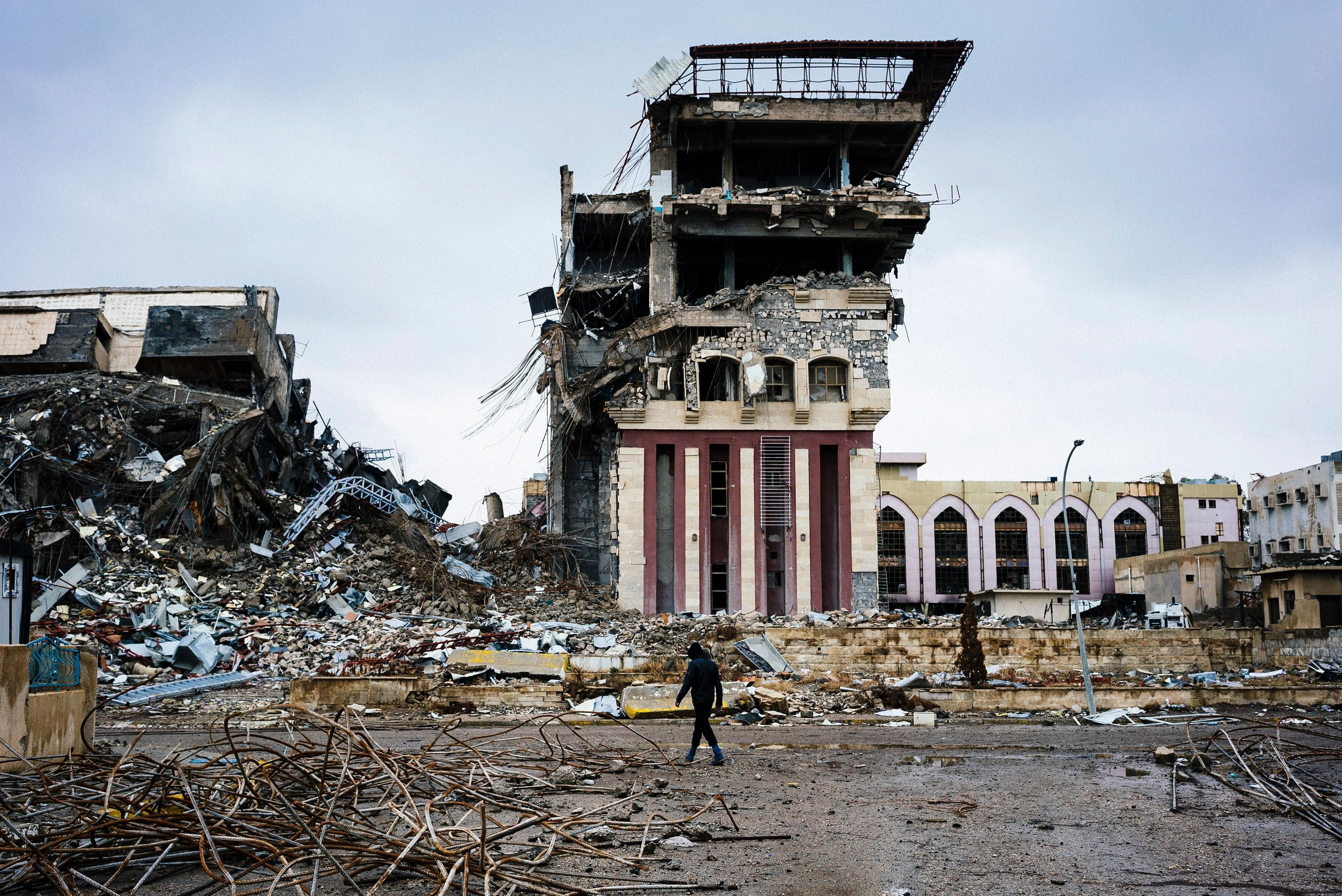
Many of Mosul University's buildings were destroyed by IS
When Islamic State (IS) militants occupied Mosul University in June 2014, they set about destroying its precious collection of manuscripts in a show of contempt for culture and higher education.
Now though, in an attempt to rebuild Mosul's cultural heritage, a campaign is under way to restore the university library and others in the city.
The project is being led by an anonymous blogger, who found fame writing about life under IS on the site Mosul Eye for the past three years.
The blogger, who describes himself as an independent historian, is calling for donations of books and other printed material in all languages and from all disciplines under the slogan: "Let it be a book, rising from the ashes."
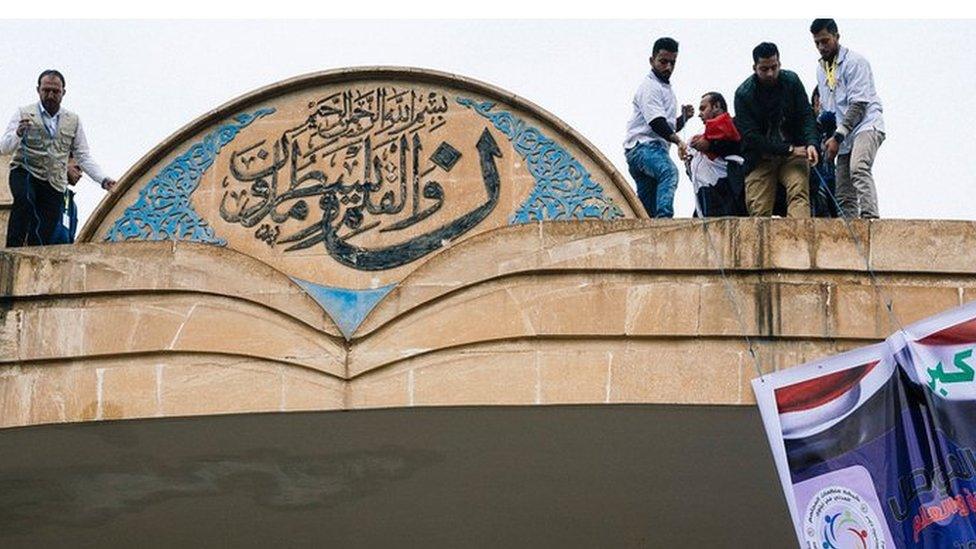
Iraqi students hang a banner off the main entrance of Mosul's University in January 2017
'Illegitimate science'
The university, lauded as one of the Middle East's pillars of higher learning, housed one of the most extensive collections of literature in the region.
The library was once home to some of the "most precious and valuable manuscripts and rare prints in the region", according to the man behind the Mosul Eye website.
It is believed the militants destroyed or looted well over 100,000 manuscripts during the occupation.
According to the blogger, IS said the books represented "illegitimate science" and blasphemy.
Read more:
Some 400 books have been received since the campaign was launched in February, with thousands more waiting in collections centres in the US and Europe. A French institute in Marseille has pledged to donate about 20 tonnes of books to the campaign.
"We hope the campaign will serve as a link between Mosul University and the rest of the world on academic, cultural, and social levels," the blogger says.
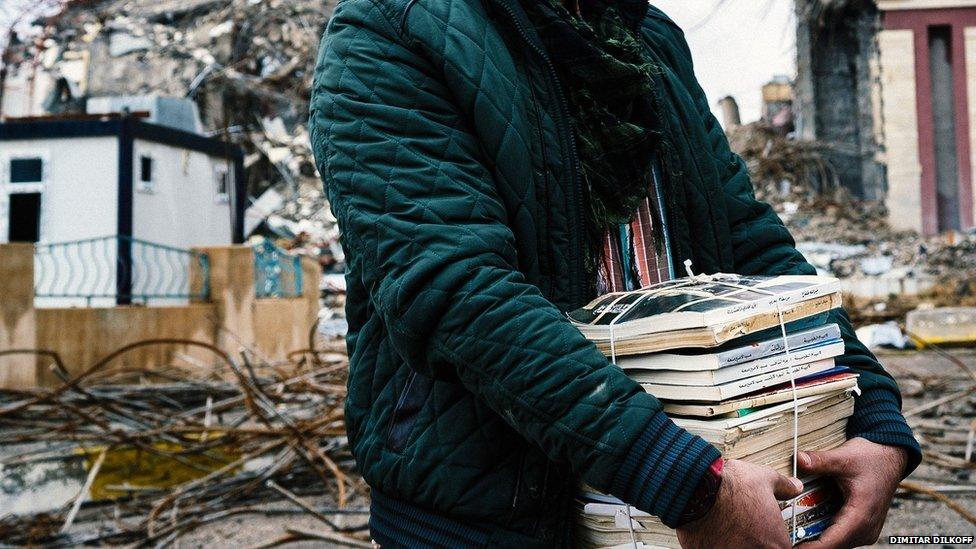
Some books were salvaged from the university
The aim is to collect at least 200,000 books.
The blogger told the BBC by email that some Iraqis responded to the drive by volunteering to collect books in major Iraqi cities, but the response from other Arab countries has been "negligible with a capital N".
"So far, we received only one single donation from an Iraqi lady living in Jordan, and frankly, her donation was the first donation we received since we launched the campaign."
Collection centres
One of the main obstacles to the campaign is logistics - specifically the shipment of books into Iraq and the war torn city itself.
Earlier this month, Mosul Eye issued a plea via social media to Basra port authorities to facilitate the transfer of a 200-tonne shipment of books from a collection centre in Irbil.
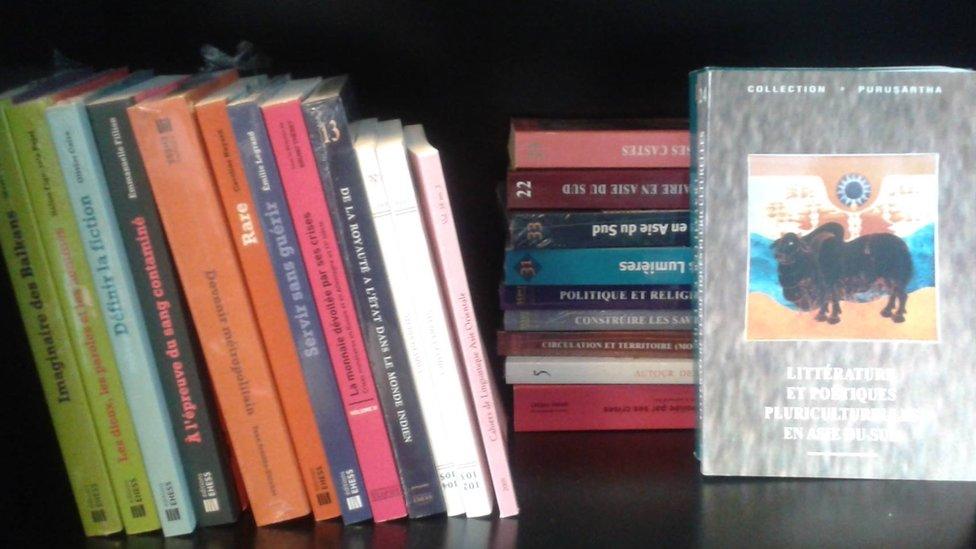
Some of the books already donated
And new collection centres are now being established in the US and Europe.
Campaigners will then work on collecting and categorising the books to prepare them for the shelves of Mosul's libraries once the city is fully recaptured from IS.
The army has already retaken the eastern side of the city, where the university is situated, and is regaining territory from the militants in the west.
War on culture
The destruction of ancient sites has been characteristic of IS activity when it has taken control of areas of Syria and Iraq, a practice described by the UN cultural agency Unesco as "cultural cleansing".
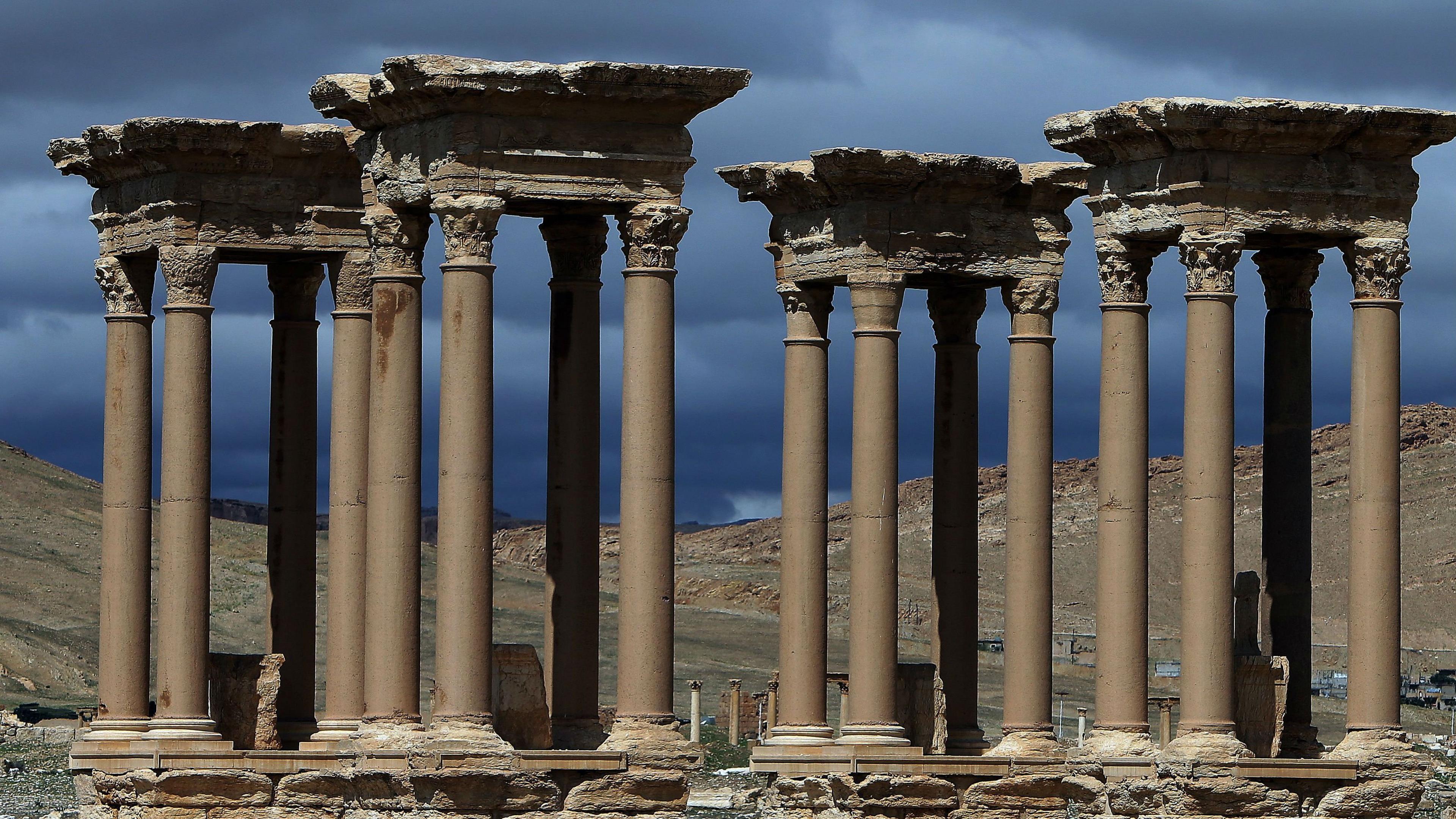
The Tetrapylon at Palmyra before IS occupation
The militants have destroyed shrines, statues and other sites of historical significance in line with a strict interpretation of Islam which forbids idolatry.
The ancient Syrian city of Palmyra bears the most visible scars of IS occupation. In 2015, the group published a video of the Temple of Baal Shamin being blown up with dynamite.
And recent footage from the ancient city aired on Syrian TV has showed the damage caused to other ancient buildings under IS occupation.
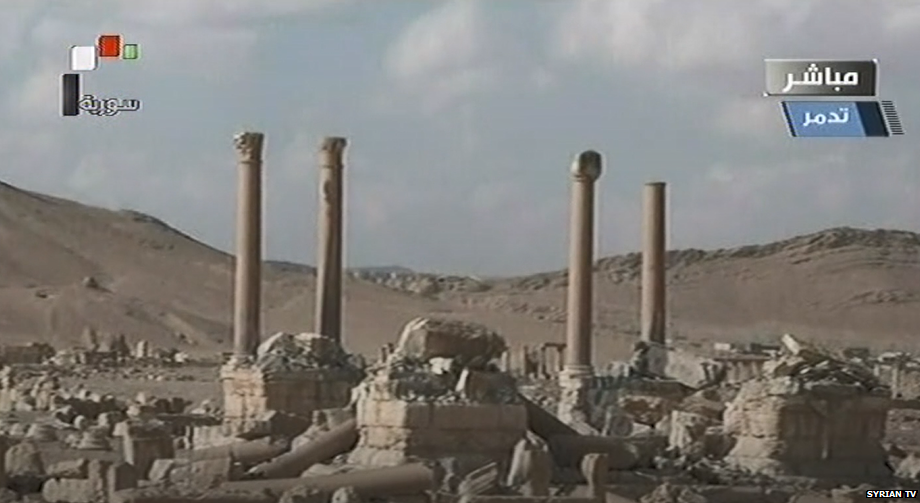
Footage of the Tetrapylon at Palymra after the area's recapture from IS
BBC Monitoring reports and analyses news from TV, radio, web and print media around the world. You can follow BBC Monitoring on Twitter , externaland Facebook, external.